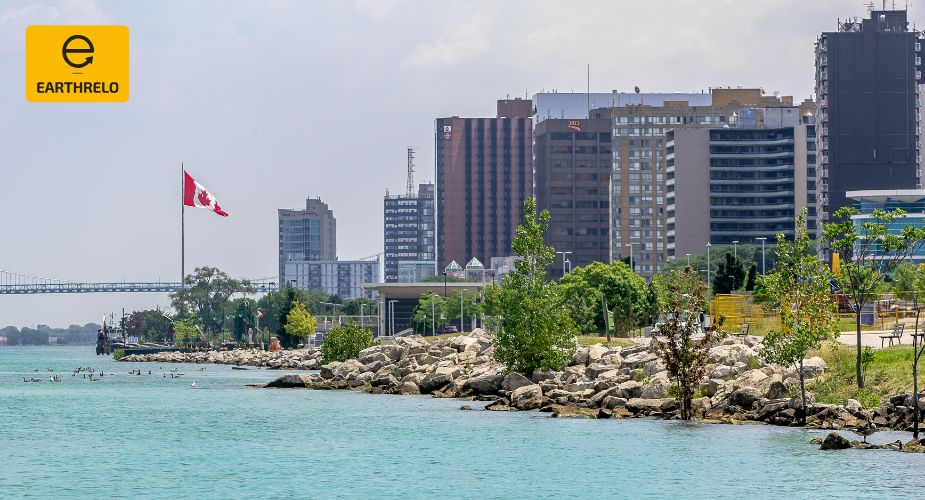- October 28, 2024
France is a land of rich culture, scenic landscapes, and a lifestyle that attracts people from all over the world. Whether you’re drawn to the bustling city life of Paris or the peaceful countryside of Provence, relocating to France promises new adventures and a better quality of life. From savoring world-class cuisine to enjoying an outstanding healthcare system, there’s no shortage of benefits for those looking to move to this European gem.
However, the decision to relocate to France can be more complex than just packing your bags. It involves meticulous planning to ensure a smooth transition. This guide will walk you through everything you need to know about settling into French life with ease, covering practical aspects like accommodation, finances, and the essential steps you need to take after arriving. Let’s dive into how you can make your move to France as seamless as possible.
Preparing for the Move
Relocating to France requires thorough preparation, from organizing your living arrangements to moving your belongings and understanding the local systems. Below are the key steps you should take to ensure everything goes smoothly.
Housing and Accommodation
Securing housing is one of the most important steps when you relocate to France. The process may seem complicated at first, especially for those unfamiliar with French rental practices. Many landlords require extensive documentation such as proof of income, a bank account, and even a French guarantor before approving a lease.
If you are new to the country, it’s a good idea to book temporary accommodation like a short-term rental or an Airbnb for your initial stay. This allows you to have an address while you search for permanent housing and gives you time to adjust to your surroundings. Popular cities for expats include Paris, Lyon, and Bordeaux, though each has its unique pros and cons. For a more affordable option, consider cities like Grenoble or smaller provincial towns, where rent is lower compared to metropolitan areas.
The earlier you start looking, the better. Joining expat forums or housing groups online can provide valuable advice on securing housing and connecting with others who have successfully navigated the French rental market.
Transportation of Belongings
One of the more logistical challenges when you relocate to France is getting your personal belongings across borders. While many expats choose to bring only the essentials, others may prefer to ship a larger amount of household goods. Options for transporting belongings include air freight, sea freight, or hiring a professional moving service. Each method has its pros and cons depending on the volume of your items and budget.
Before moving, it’s important to evaluate what is worth taking with you and what can be purchased locally. France has a wide variety of goods available, so it’s a good idea to downsize your belongings before you move. Start by decluttering and selling items that you won’t need in France. You can always repurchase certain things after you’ve settled in.
For those who relocate to France with a large number of possessions, using an international shipping company can simplify the process. These companies can assist with customs regulations, ensuring that your items make it safely to your new home.
Pet Relocation
Bringing pets to France is possible, but it requires proper planning. To enter France with your furry companion, pets must have an up-to-date rabies vaccination and be microchipped. Depending on the animal, additional vaccinations or paperwork may be needed, particularly if they are coming from a non-EU country.
Dogs and cats are the most common pets to relocate to France, but if you have more exotic pets like birds or reptiles, additional regulations may apply. Make sure you’re well-informed about French pet laws to avoid any issues at customs. Some dog breeds, such as Staffordshire Terriers, face restrictions, so it’s important to verify breed-specific regulations beforehand.
Relocating pets to France involves coordinating with your veterinarian for health certificates and ensuring that all travel arrangements meet French animal import requirements. Plan this step well in advance to ensure your pet’s safe and stress-free journey.
Health Insurance and Medical Coverage
One of the key aspects when you relocate to France is understanding how the healthcare system works. France is known for its world-class healthcare, and as a new resident, you are required to have health insurance from the moment you arrive. If you are employed in France, your employer will enroll you in the state’s public health system. However, if you are not yet eligible for public healthcare, you will need to arrange for private health insurance to cover you until you qualify for the national system.
The French healthcare system covers a wide range of services, including visits to general practitioners, hospital stays, and specialist care. After three months of residency, you can apply for the French universal healthcare system, which provides access to affordable medical care. However, during your first few months in France, private insurance will be necessary to ensure that you are protected in case of emergencies.
By sorting out your health insurance ahead of time, you can avoid unexpected medical costs and have peace of mind during your relocation.
Updated with Keyword “relocate to France”
Settling into French Life
After you relocate to France, the next crucial step is to adapt to your new environment. Settling in involves adjusting to the local lifestyle, managing your finances, and understanding key systems like healthcare and transportation. Below are some practical tips to help you feel more at home after you relocate to France.
Cost of Living
Understanding the cost of living is essential for anyone planning to relocate to France. While Paris is known for its high cost of living, other cities like Lyon, Bordeaux, and Marseille offer a more affordable lifestyle. Generally, rent, groceries, and utilities are higher in major metropolitan areas, but there are plenty of options in smaller towns that provide a lower cost of living without compromising quality of life.
Key expenses to consider:
- Rent: The average cost of rent in a major city center can range from €700 to €1,500 per month, depending on the location and size of the apartment.
- Groceries: Expect to spend around €200–€400 per month on groceries, with prices varying between supermarkets and local markets.
- Utilities: Monthly utility bills typically cost around €100–€200, depending on the season and size of the residence.
Budgeting wisely is key when you relocate to France, especially if you’re adjusting from a country with a different economic structure. It’s advisable to plan ahead for unexpected expenses, such as setting up utilities or furnishing your new home.
Opening a Bank Account
Opening a bank account is a vital step for anyone who has decided to relocate to France. You’ll need a local bank account to pay for utilities, rent, and other services. However, the process can be a bit complex, as many banks require proof of a French address before allowing you to open an account.
To streamline the process:
- Arrange for temporary accommodation (such as an Airbnb) with an official address that can be used for documentation.
- Ensure you have all necessary paperwork, including proof of income, a valid passport, and a rental contract.
- Visit local bank branches to compare services and choose the one that best meets your needs. Keep in mind that some banks cater specifically to expats, which might ease the transition.
Once your bank account is set up, you’ll find managing day-to-day transactions easier, including setting up automatic payments for utilities and rent.
Language and Cultural Adjustment
Although it’s possible to move to France without being fluent in French, learning the language will significantly enhance your experience. Mastering basic conversational French will make daily tasks, such as shopping and interacting with local services, much smoother. While many locals in larger cities like Paris or Lyon speak English, understanding French can help you integrate more deeply into the community.
Here are a few tips for easing the cultural and language transition:
- Enroll in French language classes: There are numerous options for expats, including community programs and online courses.
- Practice daily: Immersing yourself in French media—like radio, television, or newspapers—will help you quickly pick up key phrases and improve comprehension.
- Engage with locals: Join local clubs or events to build connections with your neighbors, learn about French customs, and practice your language skills.
Cultural etiquette in France may differ from what you’re used to, so it’s essential to observe and respect local customs. For example, greeting people with a polite “bonjour” before initiating a conversation is customary and appreciated.
Navigating Everyday Logistics
Once you’ve settled into your new home, managing the practical side of daily life is the next step to making your stay in France more comfortable. When you relocate to France, it’s essential to understand the local transportation options, secure healthcare, and, if necessary, find employment.
Transportation and Driving in France
France offers an extensive and efficient public transportation system, making it easy to get around without a car. Cities like Paris, Lyon, and Marseille have well-developed metro, bus, and tram networks. However, if you plan to live in a rural area or outside major cities, having a car might be necessary.
If you decide to drive in France, you’ll need to follow these steps:
- Convert your driver’s license: As an American expat, you are allowed to drive with a U.S. license for up to one year. After that, you must either exchange it for a French license (if your state has a reciprocity agreement) or pass the French driving test.
- Car insurance: France requires drivers to carry third-party liability insurance, so make sure you arrange for coverage before hitting the road.
- Public Transport: Monthly passes for public transport typically cost between €60–€80, depending on the city, offering a cost-effective way to navigate urban centers.
Healthcare and Medical Coverage
One of the advantages when you relocate to France is access to its high-quality healthcare system. France operates a universal healthcare system that provides coverage to all legal residents. After three months of residency, you can apply for public healthcare, which offers significant financial relief when visiting doctors or undergoing medical treatments. However, during your first few months in France, private insurance will be necessary to cover any immediate healthcare needs.
Key points to remember about healthcare in France:
- Private insurance: In the first three months, you will need private coverage to handle any medical issues before becoming eligible for public healthcare.
- Registration: After three months of legal residency, you can register for public health insurance through “Protection Universelle Maladie” (PUMA).
- Carte Vitale: Once registered, you will receive the Carte Vitale, which allows you to claim medical reimbursements and access a wide range of healthcare services.
Planning your healthcare coverage before you relocate to France ensures you have peace of mind and can focus on settling in.
Finding Employment
For expats, securing employment is often a critical part of relocate to France. While job opportunities are available, fluency in French can significantly improve your chances of finding work, especially outside multinational corporations.
Here are some tips for improving your job search:
- Language proficiency: Many job opportunities, especially in smaller towns, require French proficiency, so taking language classes before or after relocating can be beneficial.
- Networking: In France, personal and professional networking is highly valued. Joining local expat or professional groups can help you build connections and increase job prospects.
- Job sectors: Focus on key industries that are hiring, such as technology, healthcare, and tourism.
By enhancing your language skills and building a local network, you can improve your chances of finding a fulfilling job after you relocate to France.
Leisure and Community
Settling into a new country goes beyond handling paperwork and logistics. One of the most enjoyable aspects when you relocate to France is exploring its rich cultural landscape and finding a community that makes you feel at home. France offers numerous ways to relax, enjoy life, and integrate into society.
Exploring French Cities
When you relocate to France, you open up the opportunity to explore a variety of vibrant cities, each with its unique charm. Whether you’re interested in the cosmopolitan vibe of Paris, the historic streets of Lyon, or the coastal beauty of Nice, there’s something for everyone. Major cities provide a wealth of cultural experiences, including museums, galleries, theaters, and festivals. For example, Paris is renowned for its world-class art collections in the Louvre and the Orsay, while Lyon is known for its culinary scene.
Smaller towns and rural regions also offer their own appeal, often with lower living costs and a more relaxed lifestyle. Provincial towns like Grenoble or Aix-en-Provence provide access to stunning natural landscapes such as the French Alps or the lavender fields of Provence. As you get settled, take time to explore different areas, experience local traditions, and discover what each city has to offer.
Making Friends and Building a Social Network
Building a social network is essential for adapting to life after you relocate to France. Fortunately, the country is home to a large and welcoming expat community, especially in larger cities. Joining social clubs, attending local events, or participating in cultural activities are great ways to meet new people. Many cities also have organized meetups for expats, where you can find others who are also adjusting to life in France.
Additionally, learning the language can greatly help with social integration. Even basic French skills will open up more opportunities to engage with locals and form meaningful connections. Whether you’re attending a local market or visiting a café, striking up conversations can lead to lasting friendships and a deeper appreciation for French culture.
Wrapping Up
Deciding to relocate to France is an exciting journey filled with new experiences, challenges, and opportunities. From understanding the cost of living and navigating everyday logistics to making friends and exploring vibrant cities, each step brings you closer to feeling at home. By planning thoroughly and taking the time to integrate into French life, you’ll enjoy a smoother transition and a more fulfilling experience.
Whether you’re moving for work, family, or simply a change in scenery, embracing the French lifestyle will open doors to unforgettable memories and opportunities. And with the right resources and guidance, relocating to France can be one of the best decisions you’ll ever make.





